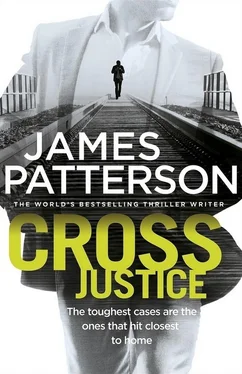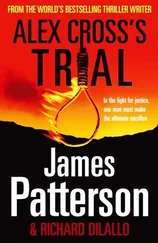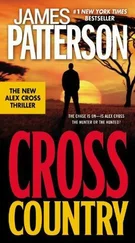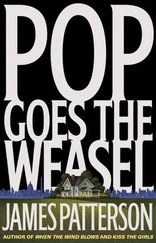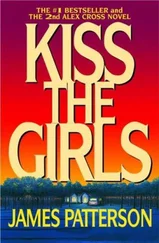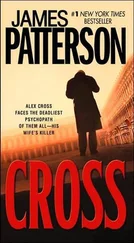Ethel wiped tears with a handkerchief, and nodded. “Ten a.m.”
I helped my grandmother into the chapel where Sydney Fox’s body lay in a closed simple casket. It was standing room only, with a crowd of genuine mourners, people who had been deeply touched by the deceased at some point, enough to appear in public and freely express their grief.
Nana Mama took a seat saved for her next to my aunts and Uncle Cliff, who clung to Aunt Hattie’s hand and looked vaguely frightened. Finding a spot just outside the doorway, I watched a few people go to the casket and pay their respects. Then I followed some others into a room where coffee and platters of Aunt Hattie’s cookies and brownies were offered.
Talking with several of the mourners, I learned more about Sydney Fox. How she’d grown up in town. How she’d married her high school sweetheart, who’d turned into a colossal asshole once he found out she couldn’t have kids. And how for years she’d endured his abuse while working as a beloved first- and second-grade teacher in the local elementary school. Many of the people I spoke to were parents of children who’d been blessed to have Sydney in their first years of school.
After a while I got angry. I’d shared just a few words with Sydney Fox, and now that seemed another crime, an armed robbery of my chance to know her.
I got a cup of coffee, ate more peanut butter — M&M cookies than I should have, and wandered back to see if Nana Mama was ready to leave. There were more people streaming in. I scanned their faces, looking for something familiar. Had I grown up with any of them? Would I recognize them after all these years?
The answer was no until I retrieved Nana Mama from the chapel and led her back for some cookies. Across the room, I spotted an imposing African American man in a dark suit, drinking coffee and munching on a brownie. He was familiar enough that I studied him.
Big dude like my best friend, John Sampson. Taller than me. Heavier than me. Ten, maybe fifteen years younger. The suit was expensive, but the body beneath it suggested hard labor. Then he changed one rough hand for another holding the coffee cup, and I knew him in a heartbeat.
I made sure my grandmother was good, walked over to him, and said, “How are you, Pinkie? Been a long time.”
The face of my Aunt Connie’s only son, Brock “Pinkie” Parks Jr., clouded a bit at my use of his nickname, but then he realized who I was and broke into a grin.
“Alex,” he said, grabbing my hand and pumping it. “Last time I saw you, you gave me a piggyback on the sidewalk in front of Nana Mama’s place.”
I had a vague vision of that and said, “Long time ago. I think you’d break my back if I tried to do that now. I heard life’s been good for you.”
“Was until I heard Sydney died,” Pinkie said, his eyes watering. “Straight up? I loved Sydney. I loved her since I was like eight and she was ten. There was something about her, you know, like things went in orbit when she was around.”
“You ever tell her?” I asked.
“Nah, we were friends, and then not so much after she married Finn Davis,” he said. “He preferred it that way.”
“I heard Finn gave her a rough time,” I said.
“I set him straight once, but what was I gonna do? I got a good life working offshore and just couldn’t be around to protect her, especially when for a while there she didn’t want to protect herself.”
“She divorced him.”
“She told me,” he said, full of regret. “We’d been sending messages on Facebook and stuff, and I’d been meaning to come up to see her.”
“I’m sorry.”
“Me too,” he said. “Any word on who did it?”
“Looked like a case of mistaken identity to me,” I said, then explained about Stefan’s fiancée being blond too.
Pinkie looked skeptical. “No one’s looked at Finn Davis?”
“We heard racial slurs before the shot,” I said. “They were yelling at Patty.”
“Maybe,” Pinkie said. “But Finn Davis is smart enough to use that as a cover. Then again, he was trained by the best.”
“And who would that be?”
“Old friend of your father,” Pinkie said grimly. “Marvin Bell.”
Before I could say anything to that, Aunt Hattie came in with Uncle Cliff, who was in a wheelchair today. She brightened when she saw us and came over. After greeting her nephew, she excused herself to go talk to Nana Mama and Aunt Connie.
Pinkie knelt down by our uncle, said, “How you doing, Uncle Cliff?”
“Vacation’s been good,” Uncle Cliff said. “Heading back to work next week. Got the City of New Orleans the whole next month. Gonna meet Jason in the Quarter next week, hear us some bad-ass blues and talk old times.”
I said, “My dad died, Cliff.”
My uncle frowned, but then looked at my cousin and got anxious. “That right, Pinkie? When Jason die? Why no one told me that?”
“He died a long time ago, Cliff,” I said. “When I was a boy. He got shot and fell off the bridge into the gorge.”
Clifford got even more anxious. “Pinkie, that ain’t right. Jason dead?”
My cousin licked his lips, glanced at me, and then patted Cliff’s arm and said, “Just like Alex said. You know that. We all know—”
Shouting erupted outside. It sounded like Ethel Fox.
Pinkie and I both left Uncle Cliff and went out on the front porch of the funeral home. Sydney Fox’s tiny mother stood toe to toe arguing with a man a solid foot taller than her. Rangy, with a chiseled, hard face, he was about Sydney’s age and dressed for the occasion in a dark gray suit.
“You’ll go in there over my dead body,” Ethel Fox said.
The man smiled. “She was my wife for years, Ethel. Least you can let me do is pay my respects.”
“You never respected her in life, Finn Davis!” Ethel Fox shouted. “Why should you in death?”
Davis leaned over his former mother-in-law, put his finger on her chest, and said in a low, threatening voice, “’Cause it’s the right thing to do, Ethel.”
Pinkie was off the porch in a shot with me right behind him.
“Back off, Finn,” Pinkie barked. “Back off, or I will bust you up fierce!”
All of a sudden, out from the shadows and between the cars, four men appeared. Every one of them had a tough, hard edge.
“Pinkie Parks,” Davis said slowly, taking a step back from Ethel Fox with an amused expression. “Figured you might be here, so I brought some friends along just in case. Who’s your sidekick?”
“My cousin,” Pinkie said. “He’s a big-time cop, works with the FBI.”
If Davis was impressed or intimidated, he didn’t show it. “Way I heard it, he’s down here trying to get your sick-fuck cousin Stefan off for killing that little boy. That the blood that runs through all you inbred cousins down there on Loupe Street? Sick-fuck blood?”
“Keep it up, and you’ll find out,” I said in a low, level voice.
Davis’s smile turned cold. “You keep it up, the whole lot of you gonna be driven from this town.”
“Leave,” Pinkie said. “You’ve got no legal right to be here, and you certainly have no moral right. So leave.”
Davis hesitated, and then took a step back, hands at his sides, palms exposed. “Have it your way, Ethel,” he said to his ex-mother-in-law. “You mourn dear Sydney. You bury dear Sydney. Next week I’ll go out to the cemetery, pay my respects, and piss on dear Sydney’s grave.”
Stefan Tate’s trial began in earnest the following morning at eight o’clock sharp. The jury of eight women and four men had been empaneled the week before, and Judge Erasmus P. Varney lived up to his reputation for keeping his courtroom moving at a brisk pace.
Читать дальше
